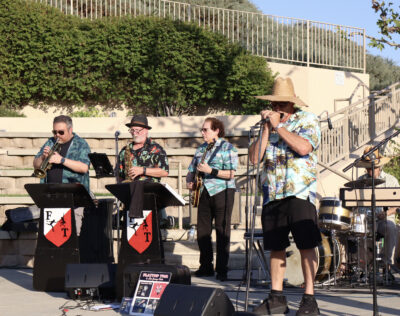
Whereas in most African American circles, the church is not only a worship venue. It is the place where people can come to mourn, to celebrate, and in some instances to speak truths they do not feel safe elsewhere. It was a home-based generation, after generation, when people were experiencing hard times.
This is why it is quite natural that when people start discussing mental health issues, they start with the values.
More Than Just a Sunday Message
The church has been a pillar in Black life since the earliest days of resistance and survival. It offered hope during segregation, structure during hard times, and dignity when society withheld it elsewhere.
It remains among the rare places where individuals across all age scales can meet, be heard, and be seen even today. And to many, it is the last resort when life is too heavy.
That matters. Especially when so many African Americans face barriers to getting mental health care, cost, stigma, mistrust, and lack of providers who “get it”, these are still real problems.
According to the Office of Minority Health, only a third of Black adults who need mental health services actually receive them. That’s not because people don’t care about getting better. It’s because the system often feels like it wasn’t built for them.
When Churches Step In
What happens when therapy feels out of reach or out of touch? For many, the church fills in the gap.
Pastors may not be licensed therapists, but they are trusted. Their words carry weight. Their presence is steady. And in places where there’s no clinic nearby, or no money to afford one, they are often the first line of support.
But more and more churches are realizing that spiritual care is only part of the answer. This is the reason why others are partnering with mental medical practitioners. They are inviting counselors to speak at the events, or making referrals, or even having the support groups on site.
Tools like Help for African Americans give churches a place to start. This site curates resources designed with the Black community in mind, programs, services, and educational materials that feel relevant and safe.
When faith spaces meet people where they are, without judgment, healing can begin.
Therapy Needs to Feel Familiar
To deal with mental health care, individuals must trust the person on the opposite side of the table. Yet, trust cannot be established in a day, more so when the majority of therapists do not come from common roots.
The American Psychological Association estimated that Blacks comprise only around 4 percent of all psychologists in the U.S. That means many African Americans never see themselves reflected in their providers.
It’s not just about skin color. It’s about shared experience. It’s about not needing to explain what it feels like to live with constant stress, or why some words hit harder because of history.
The National Alliance on Mental Illness notes that Black individuals often experience misdiagnosis, provider bias, and poor communication when working with clinicians who lack cultural understanding.
Churches can help bridge this divide. When they guide members to therapists who understand them or partner with those providers, they help people feel less alone. That’s powerful.
What Churches Are Doing Right Now
Some churches are already out front on this issue. They’re not waiting for change to happen; they’re making it happen.
Examples include:
- A Maryland church that offers wellness days with free counseling.
- A Georgia congregation hosts grief groups led by licensed professionals.
- A youth ministry in California that invites therapists to speak with teens about stress and social media.
These efforts send a clear message: needing help is not weakness. It’s a strength.
In fact, research shows that faith-based mental health programs can lead to measurable improvements in emotional well-being among African Americans, especially when supported by trained professionals.
Tackling Stigma from the Inside
In too many homes, the idea of therapy still feels off-limits. People are told to pray it away. To “be strong.” To keep the family business private.
But stigma doesn’t go away by itself. It fades when someone trusted speaks up. And in many communities, that voice belongs to the pastor.
When church leaders talk honestly about mental health, it helps people breathe. It gives permission. And when they say, “You can have Jesus and a therapist,” it opens doors that had been shut tight.
This kind of leadership changes culture, not just for one person, but across generations.
Looking Out for Youth
Young people today carry a heavy load. Social pressure, family stress, and fear about their future take a toll. Others lack an individual to communicate with. Other people are lost to describe what is happening.
Churches are able to assist as well. Some offer journaling workshops. Others invite young adults to share in small groups. A few are even bringing mental health coaches in during Bible study nights.
It is not meant to eliminate the therapy; it is instead supposed to create consolation and confidence. In that manner, when they do need extra attention, they will know how and where to get it.

Taking Small Steps That Matter
No church has to do everything at once. Sometimes, small efforts go far.
Printing local mental health hotlines in the church bulletin. Creating a quiet room for those who feel overwhelmed during service. Inviting a guest speaker for Mental Health Awareness Month.
Each of these says: “You’re not alone. You’re welcome here.”
And that message sticks.
Final Thought: Healing That Feels Like Home
For many in the Black community, healing isn’t found in a waiting room or a worksheet. It starts with connection. With shared values. With someone saying, “I see you, and I’ve been there too.”
Churches are best suited to provide that type of care. They do not have to do it perfectly. They are not required to do anything except keep coming.
Faith and mental health do not need to exist in two different worlds. They are capable of sitting on the same pew. They are able to collaborate.
And once they do, the journey towards recovery will be a bit less isolating and much more feasible.






